China: the last frontier?
China is a relatively unknown country when it comes to bike racing, yet the nation with the most...
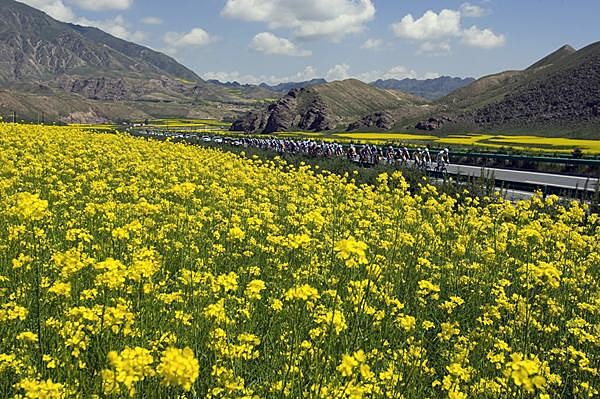
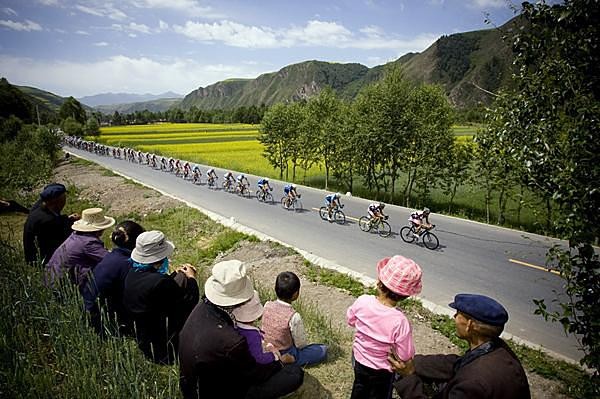
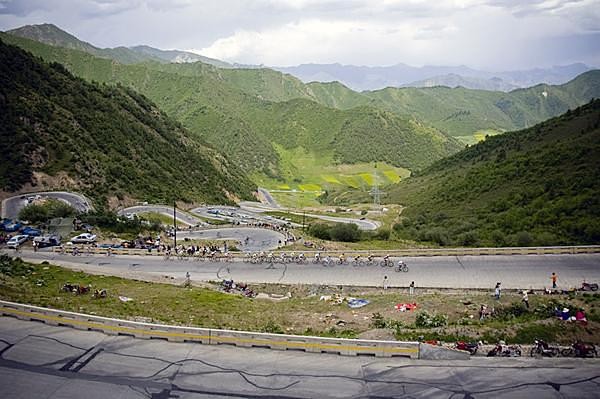
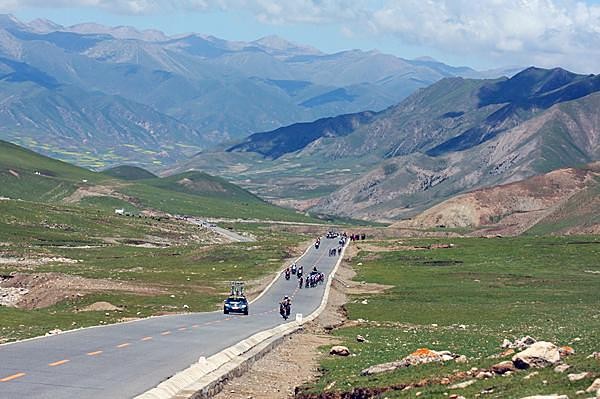
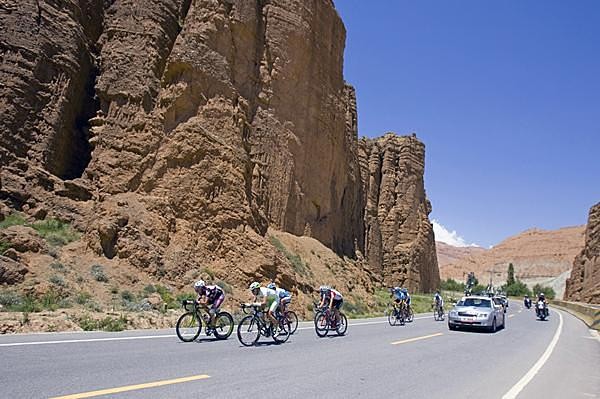





Tales from the Peloton, August 2, 2008
China: the last frontier?
As the cyclists of the world descend upon Beijing, one might not realize that many of these riders will have never set foot in Asia until they arrive for the Olympic Games. Some, however, might have taken in the country's biggest stage race as preparation for the Games. Cyclingnews' Paul Verkuylen was in the rarified air of the Tibetan plateau for the Tour of Qinghai Lake, and offers some insight on what it's like racing in China.
China is a relatively unknown country when it comes to bike racing, yet the nation with the most number of bicycles per capita is hoping to change that with races such as the Tour of Qinghai Lake. The event has steadily been growing in stature since its inception in 2002. This year the organizers had over 40 unsolicited requests from teams around the world interested in taking part in the event.
Racing in a far off eastern country can be somewhat daunting for the majority of the mainly western peloton, especially when the part of that country is as remote as the Qinghai region is in China. Set high on the Tibetan plateau the race makes its way around the largest inland lake in China, made famous for its use as a testing ground for nuclear submarines.
One of the main hurdles for any non-Asian team visiting the race is the culture shock. Yet despite the location, racing in China is not too different to the rest of the world.
Much like many European races, The Tour of Qinghai Lake takes in a variety of terrains. Flat stages suited to sprinters such as Alex Rasmussen and Allan Davis, who have taken nine stages between them in the last two years, are broken up by some of the highest mountains ever seen in a bike race. In fact Qinghai boasts the highest mountain pass in cycling; the Laji Mountain takes riders to a maximum altitude of 3880 metres.
Get The Leadout Newsletter
The latest race content, interviews, features, reviews and expert buying guides, direct to your inbox!
What does set the race apart is the people and tradition, or in this case it's lack of it. China is well known for having made the bicycle a primary means of transport, so much so that they currently have over one billion bikes. However, the majority of their 1.2 billion inhabitants are lucky to raise a sweat as they make their way around on the utilitarian machines that dominate the streets. It is no surprise then that they are not known as a major force in road racing, yet they have chosen the sport as a means to raise the country's tourist appeal.
The beauty of racing in Qinghai is in its simplicity. Some of the world's best riders have ridden the race; Tom Danielson won the inaugural race in 2002 before Damiano Cunego took the title the following year. The locals may not be aware of who these riders are, or what they may have gone on to achieve. What draws the thousands of locals to stand on the road side for hours before the race passes through their small town or their yurt on the side of a mountain is the color and spectacle of the race.
Qinghai Lake is a sacred lake for the Tibetans and like most sacred lakes in Tibet, pilgrims circumambulate it, which can take up to 25 days. For many of the riders the race is a ten day journey of discovery, not unlike that of the pilgrims.
The race, situated at an average altitude of 3000 meters, brings its own set of unique challenges. Altitude sickness is common and although the thin air means that speeds may be a little higher, a full gas attack may leave a rider sitting on the side of the road trying to catch his breath rather than racing minutes up the road.
"There were about ten riders who were sick," Phillipe Marien, the races chief comissaires explained. "But if you go to China or even Malaysia it can occur. It is the temperature and the local food, you have to be careful."
Heiko Salzwedel, the Danish nation track coach brings his team to the race each year for this exact reason. He believes that high altitude training is beneficial for his riders when it comes to the peak in their season.
For all the pain and suffering however, the race does take in some of the most breathtaking scenery in the world. The eighth stage takes the riders over mountains which could easily rival the European greats like Sestriere, the Stelvio or the Galibier. Cresting the top of the 3800 meter high mountain, the race then makes its way into the town of Menyuan, with scenery closely resembling that which can be seen in the French Alps. Fields full of yellow flowers and snow covered peaks in the distance.
Sweden's Lucas Persson (Cycle Collstrop), who led the mountains classification for four days, was happy with the way the race turned out and was impressed by the professionalism of the race, which, in its seventh year, is still relatively young compared to the big European races.
"When I came to China I knew that everything was going to be totally different," he explained. "I maybe expected that it would be harder than this and that everything would be much more difficult.
"Everyday there is a nice hotel. If the team comes back, then I would come back for sure!"
The organizers are certainly hoping that the riders come back too, and not just next year. The race faced certain challenges as it attempted to rise up the UCI rankings to its current rank of 2.HC. Accommodations was one of them. The standard in China is not the same as that in Europe, but rather than letting that deter them, they just built new hotels like the one in Bird Island, especially for the race.
The organization of the event is as professional as they come. All of the teams praised the how well the event was put together and how efficiently it ran.
Each team was assigned a local university student, who acted as their translator for the event. Not content with a rolling road closure, the roads of each stage were shut to traffic completely, giving the race a clear, and at times a somewhat barren, run to the line.
"It is different, that's for sure," said Haldene Morris, Rock Racing's general manager. "It would be nice to have some mountain top finishes," he continued. "It would change the dynamic of the race. Also a flat time trial would be nice, since it is so long. "They definitely could make this more popular and better. The big issue is the altitude.
"You have to take extra time to prepare for the race, rather than just doing your normal thing and going to the race. It is kind of a disadvantage. Guys going to the Giro or the Tour don't have to do anything special like go to altitude before it."
China and Qinghai in particular seem set to make cycling the next big national sport for their country. They already have several women doing well on the world mountain bike stage, and the local Qinghai council sent three riders to Switzerland this year in order to race and prepare for their home tour.
The opening ceremony was attended by Hein Verbruggen who stressed the importance of the race as the UCI attempt to globalize the sport. Meanwhile the biggest pop stars in China were among the main attractions of the ceremony which was televised live in three different languages.
A US $300,000 prize purse may have drawn the teams and top riders to the race in the first place, but we expect that the tough competition, professionalism and terrain will be what brings them back each year.